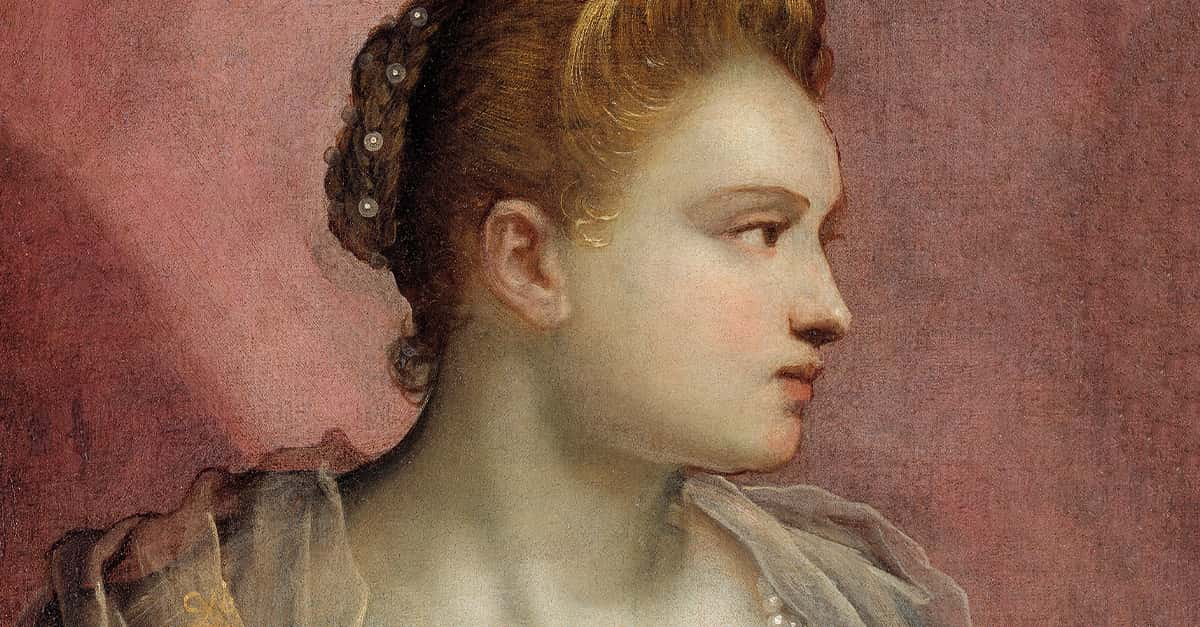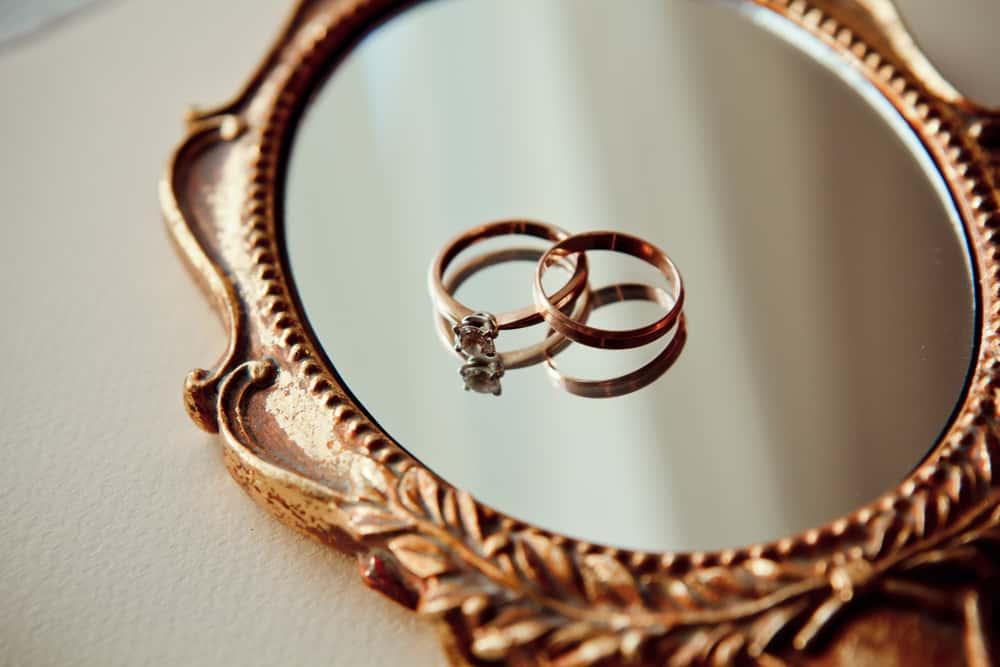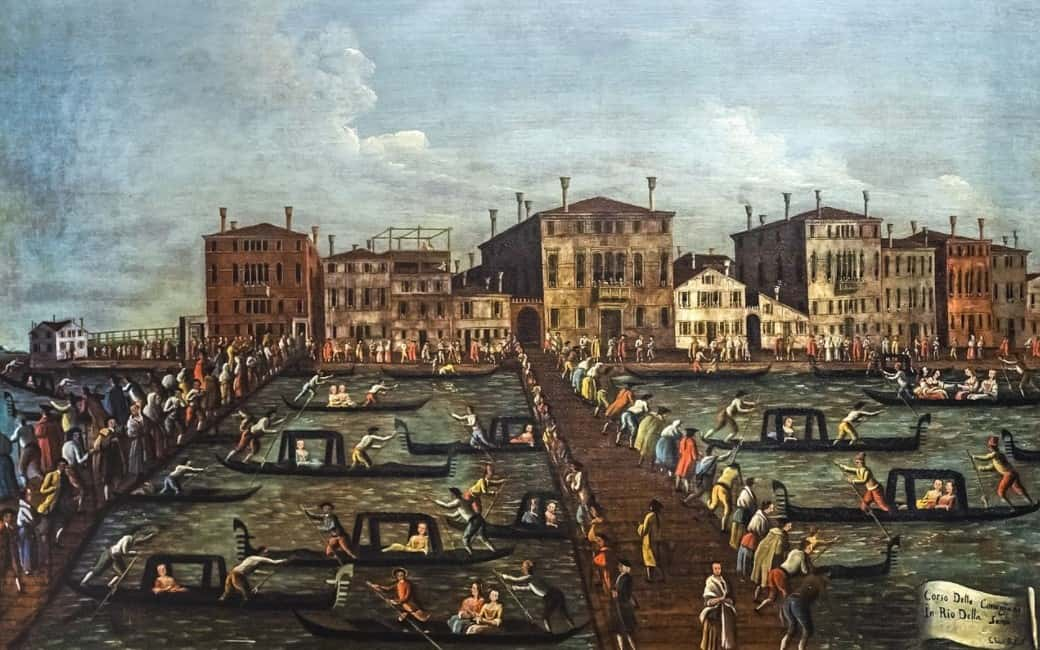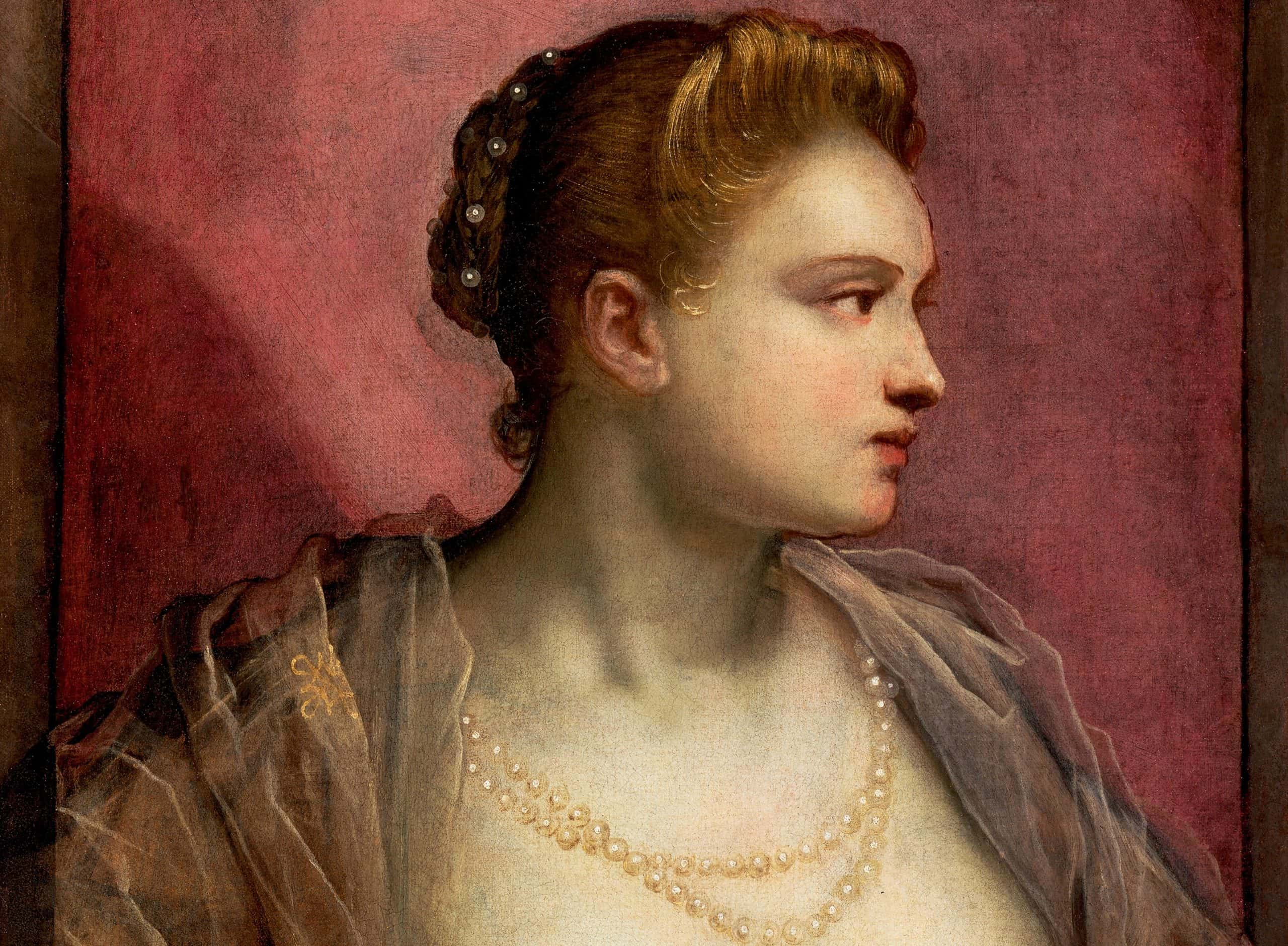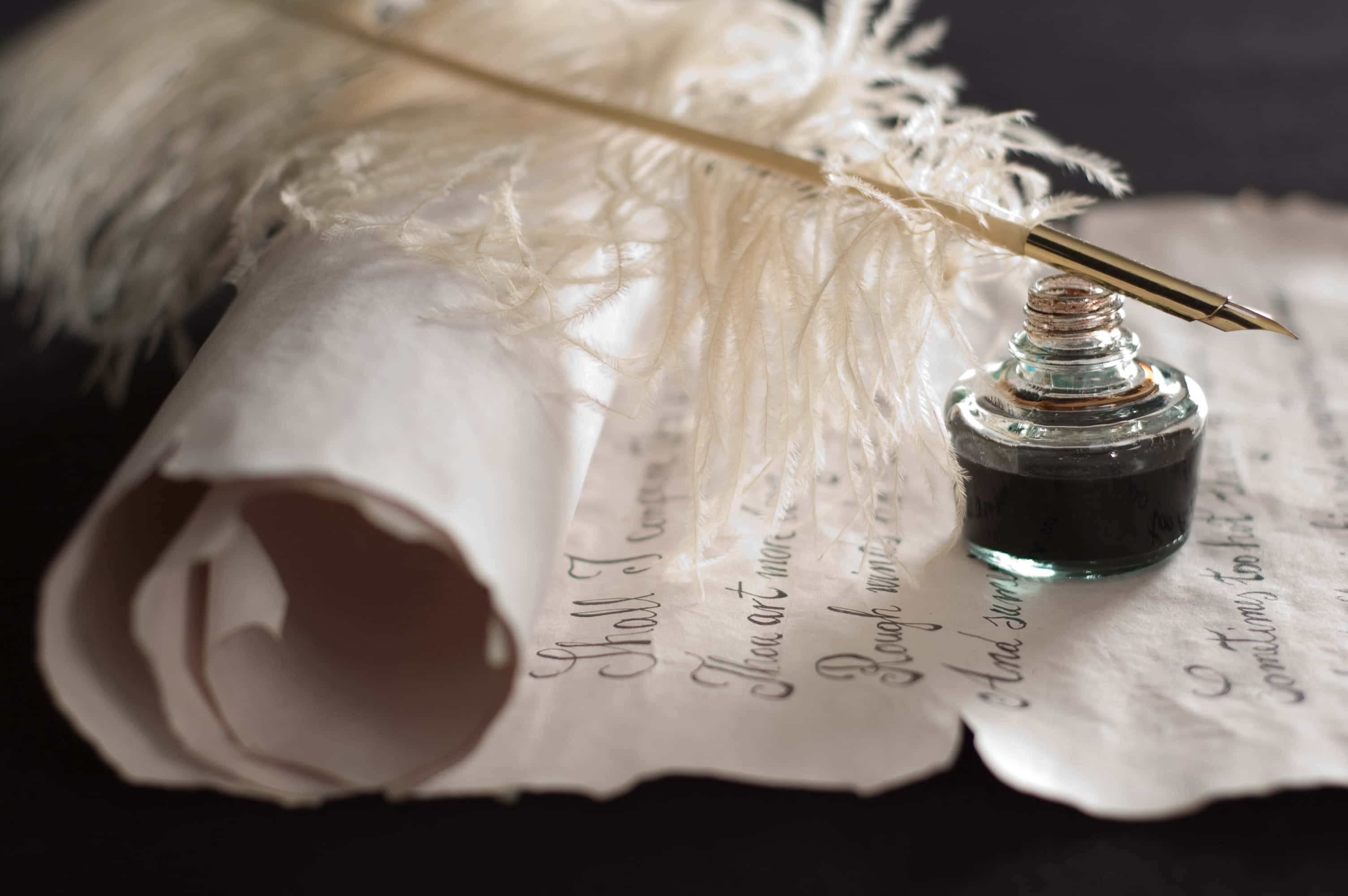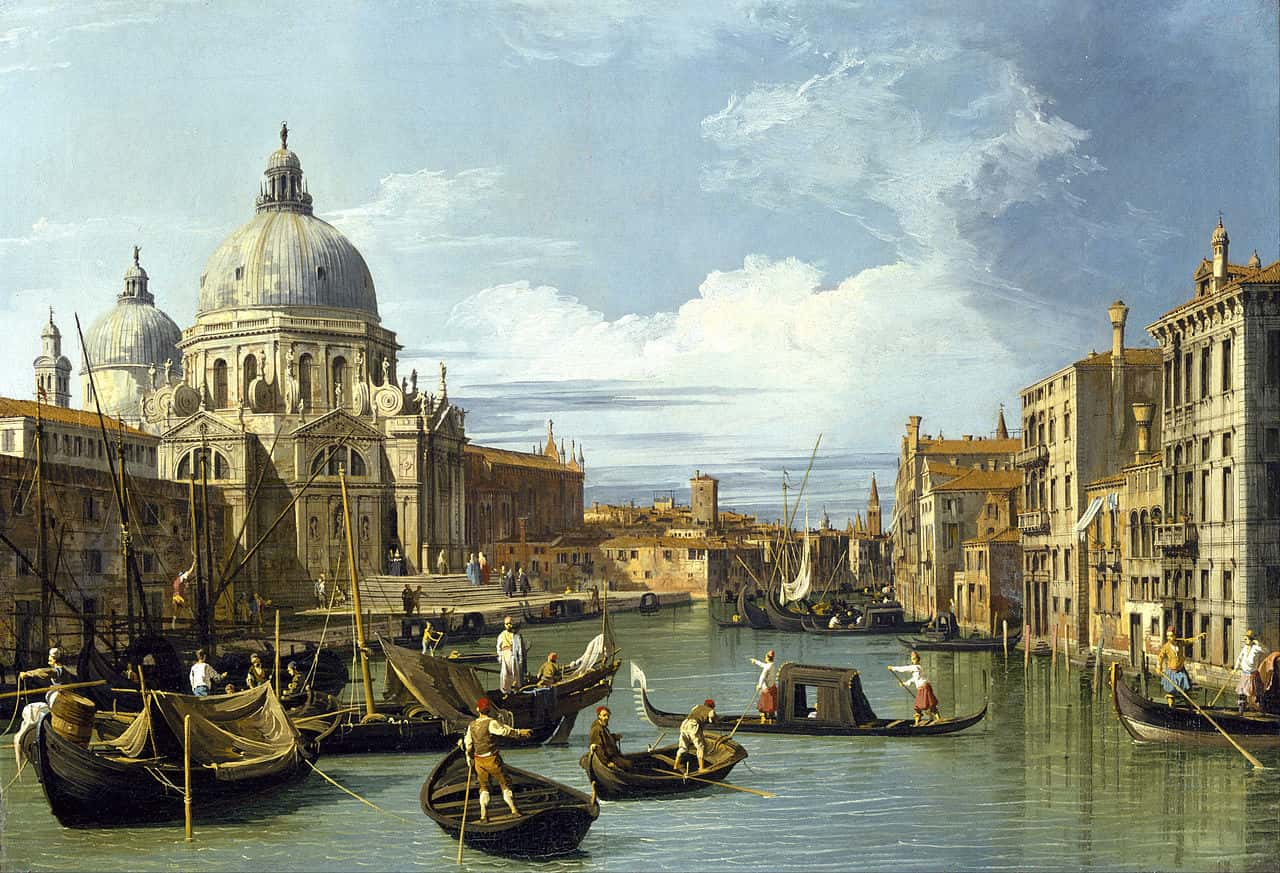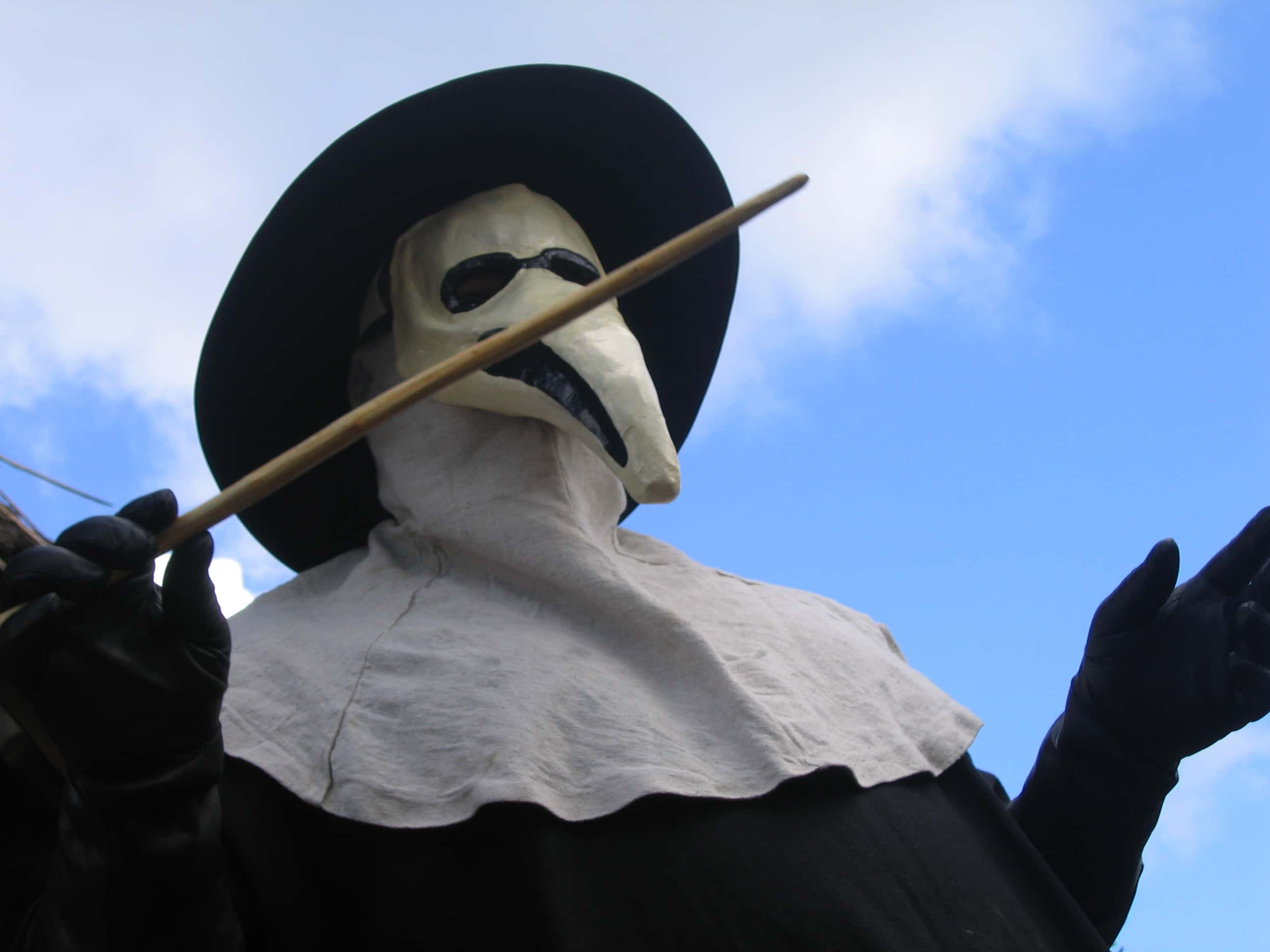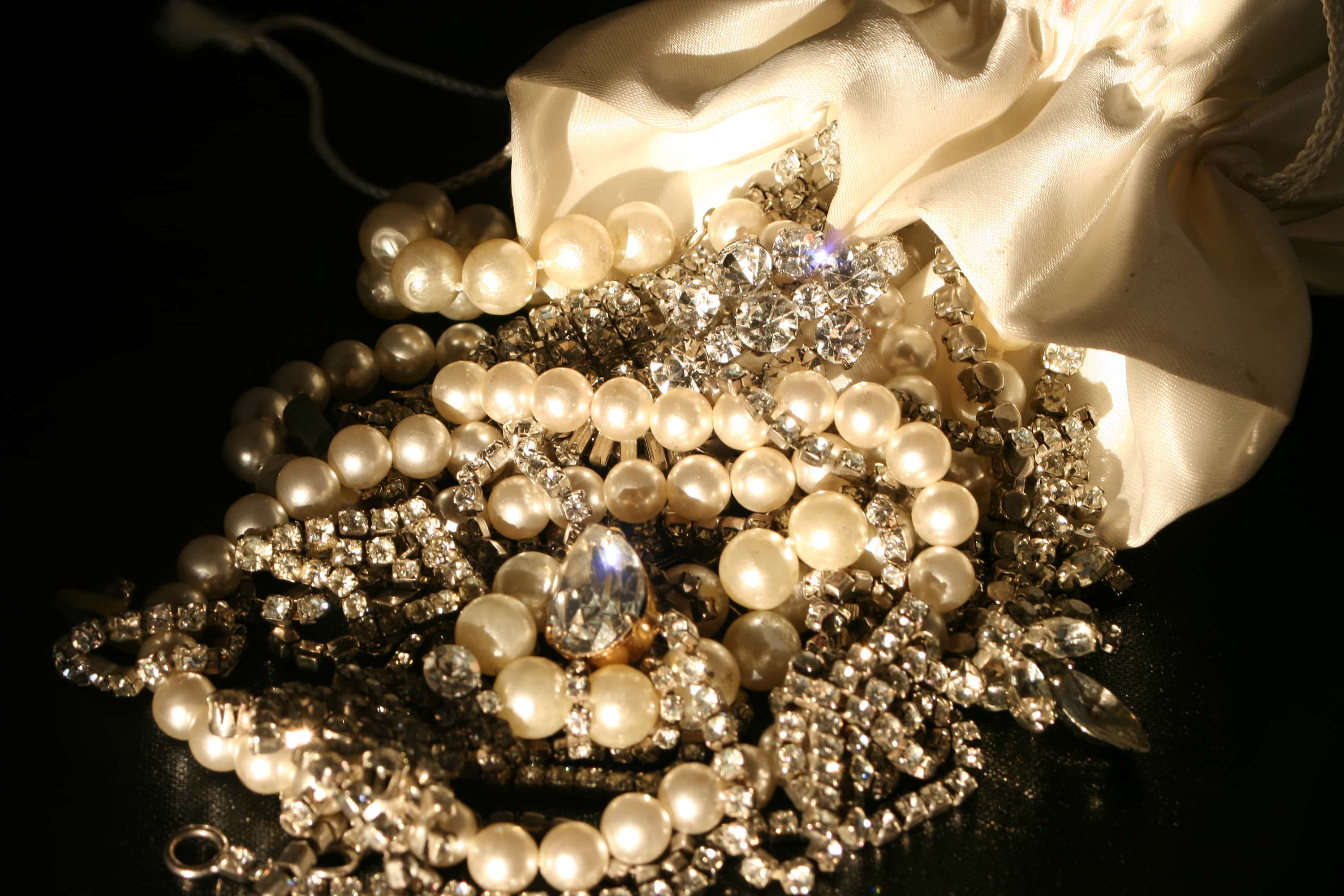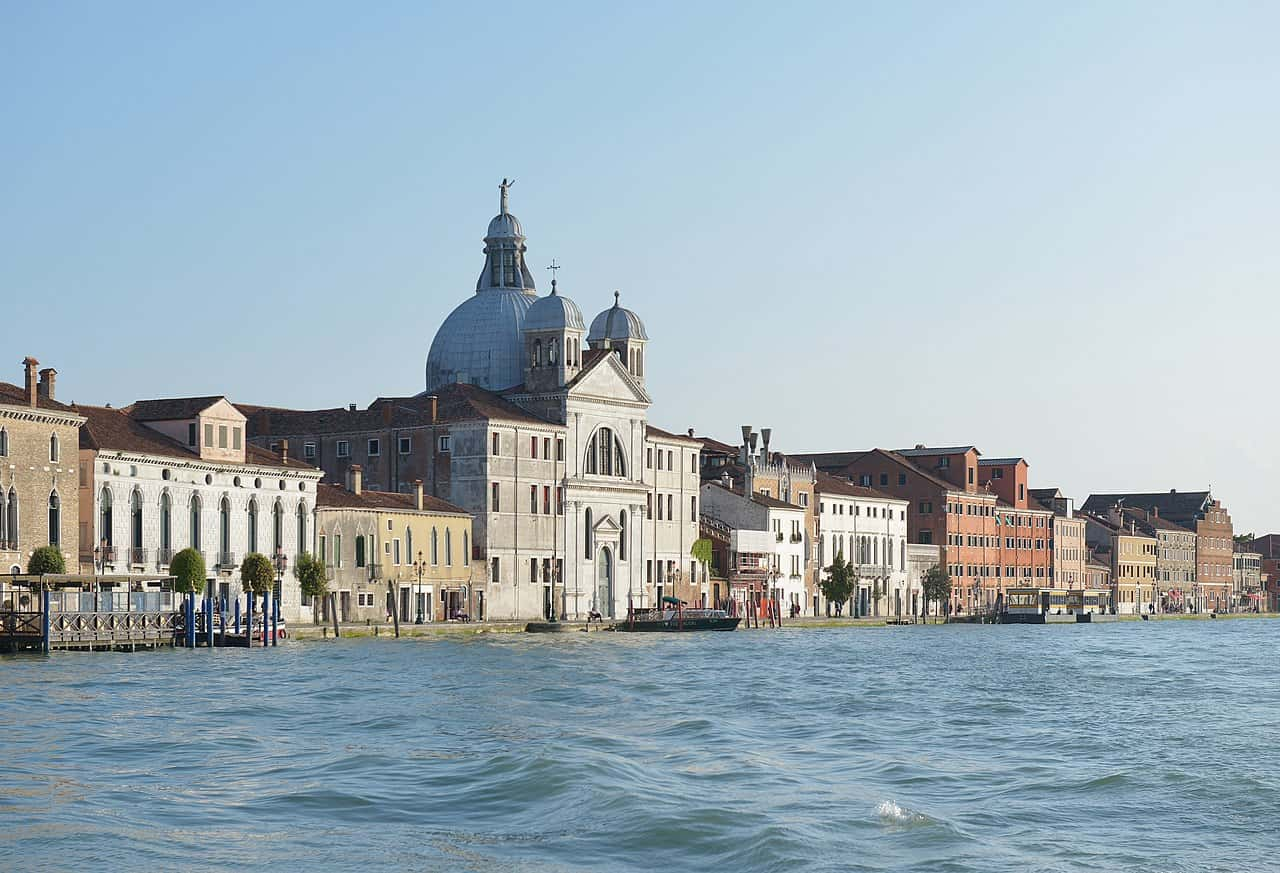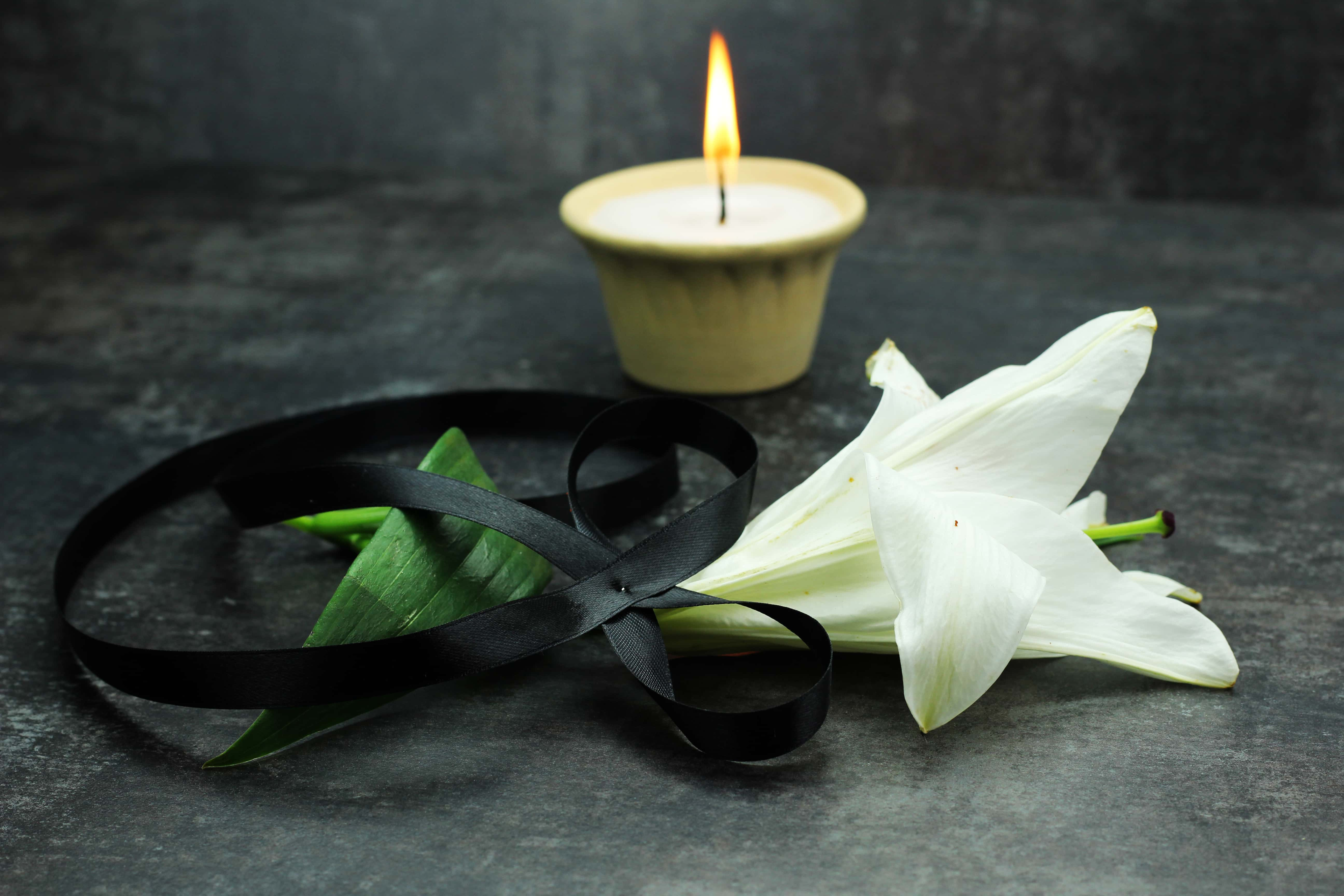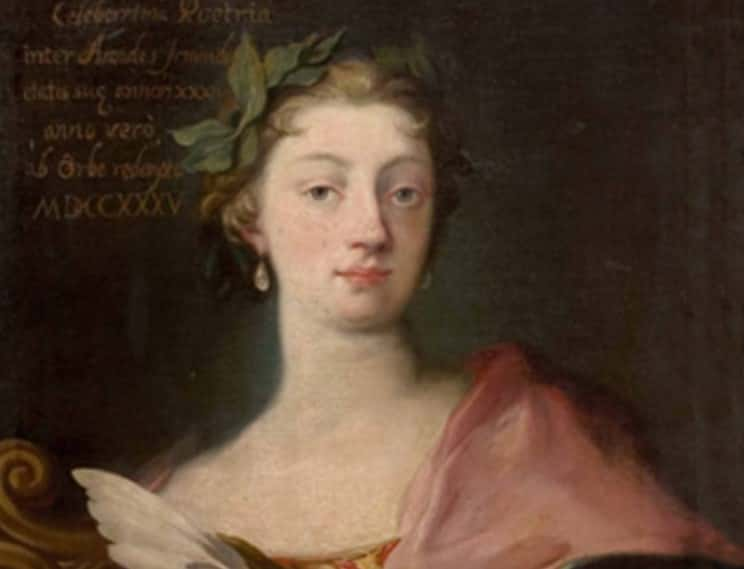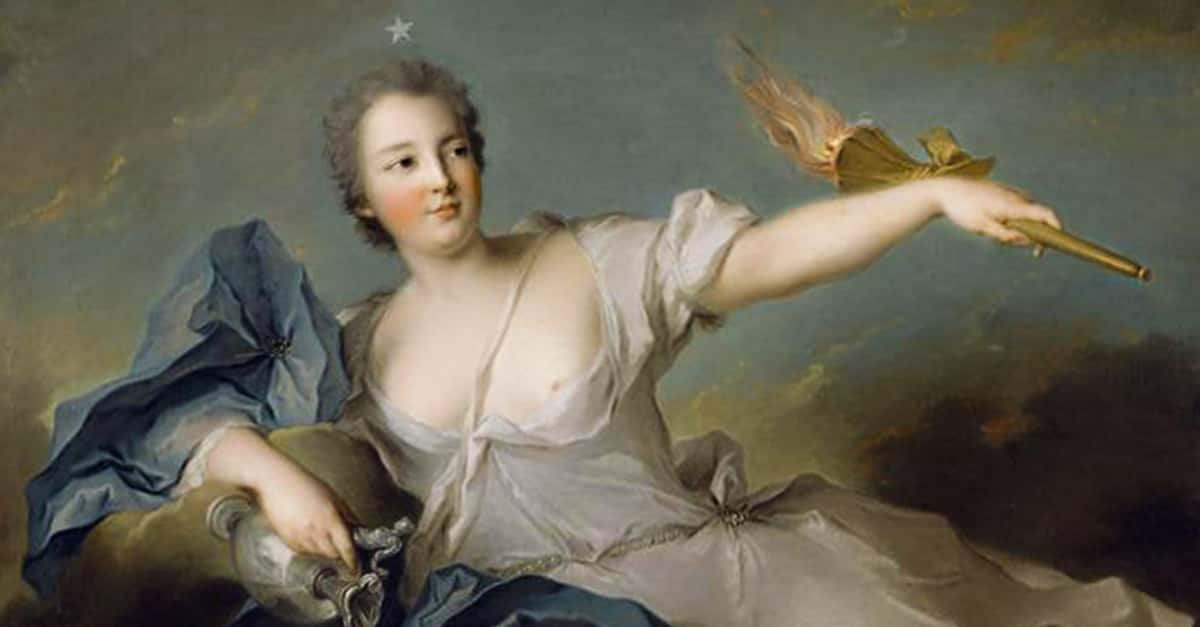History hasn’t always been kind to strong, intelligent women, and Veronica Franco was no exception. Sure, she managed to carve out a half-decent existence on her own terms in spite of all the odds against her, but unfortunately, she wouldn’t find much respite from the blows of time. A courtesan, a poet, a feminist, a witch…how has Franco’s image fared over time? Strap in folks, because this one is a bit of a roller coaster ride.
1. Her Parents Were Different
Veronica Franco’s parents came from vastly different backgrounds. Dad was a merchant, who came from an old Venetian family, a professional caste that had their own coat of arms. Mom, though, was a courtesan. Luckily for Franco, her dad not only accepted her as his daughter, but he also gave her the tools to lead a meaningful life.
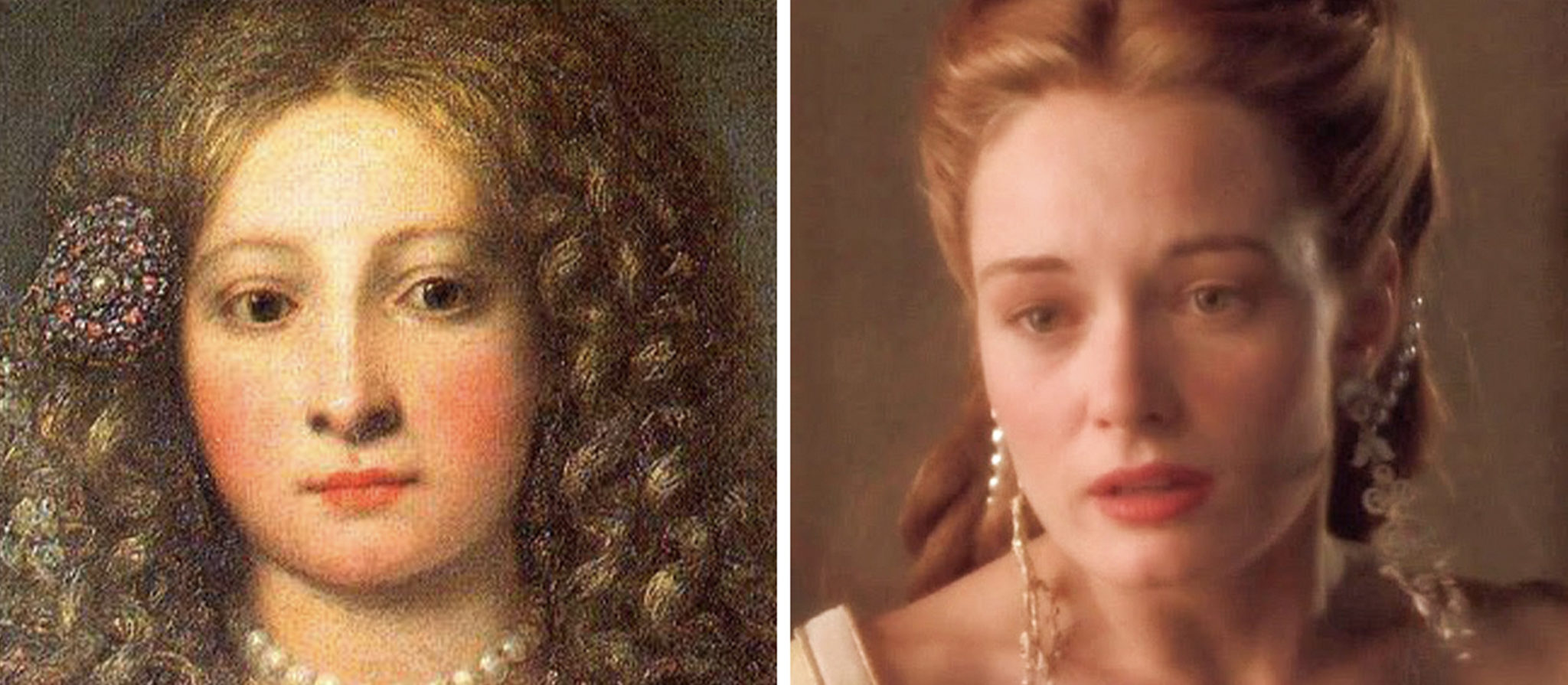
2. She Had A Decent Childhood
Franco’s dad was a good man. He accepted Franco whole-heartedly and didn’t treat her any differently from his three sons. Born in 1546, the girl received the same education as her brothers and showed a great aptitude for writing from the very beginning. But that wasn’t the only education she would get.
3. She Got Another Kind of Education Too
While Veronica Franco’s dad made sure his daughter got to sharpen her intellect with the best tutors he could afford while he was alive, all it took was a heartbreaking tragedy to upend her life. When he suddenly passed on, her mom to go back to her old profession as a courtesan. It was no wonder that young Franco learned other "skills" as well. As in, how to use her looks and intelligence to seduce powerful men.
And being the amazing student she was, Franco got that lesson down pat. Good thing too, since she’d need that training all too soon.
 Dangerous Beauty (1998), Warner Bros. Pictures
Dangerous Beauty (1998), Warner Bros. Pictures
4. She Tied The Knot
There aren’t many details on the how and when, but it is certain that Veronica Franco married an older man while she was in her teens. Her husband belonged to a respectable family and was a doctor himself. Most girls may have been content to settle down after that—but not our girl Veronica. The marriage didn’t last very long, and there may have been a scandalous reason why.
5. Her Heart Wasn’t In It
Veronica Franco was clearly never a one-man woman. According to some sources, she had an affair with a merchant from Dubrovnik while still married to her husband. And it wasn’t just a short one-night stand either; to hedge our bets, it may have lasted months if not years. Perhaps she found married life boring, but hooking up with this merchant did end up providing a little too much excitement.
 Dangerous Beauty (1998), Warner Bros. Pictures
Dangerous Beauty (1998), Warner Bros. Pictures
6. She Made A Decision
Franco was no shrinking violet. The affair with the merchant landed her a souvenir she couldn’t hide: She got pregnant! But the lady took it in her stride. She calmly accepted the child wasn’t her husband’s and asked for a divorce. She also asked him to return her dowry, which she claimed was substantial, but he didn’t. What a cheapskate.
Naturally, with no other means to support herself, Veronica decided she had to take things in her own hands.
7. She Followed Mom’s Footsteps
Although she’d given up her career briefly, Franco’s mom was one of the top courtesans of her day. Franco would go on to make mom proud as one of the most sought-after courtesans herself. In fact, the mother-daughter duo’s names appeared in a Catalog of the "Principal and Most Honored Courtesans of Venice"...at the same time.
Franco quickly made it to the top of the courtesan-ladder, taking mom along as her "go-between". This may not sound too amazing, but there was one huge perk.
 Dangerous Beauty (1998), Warner Bros. Pictures
Dangerous Beauty (1998), Warner Bros. Pictures
8. She Knew What She Wanted
It wasn’t a lot of fun being a girl in the 16th century in Venice. You were pretty much stuck between being a good wife—who was basically her husband’s shadow, with no voice or opinions of her own—or you could be a nun…or, a courtesan. Surprisingly, the latter was the most freeing option. Obviously, Franco didn’t have to think twice when she chose this path...but there was even more to it than that.
9. She Enjoyed The Freedom
You may think "courtesan" was a fancy word for sex worker, but the term held a lot more nuance. Venetian courtesans, or cortigianas, were at the top of their career ladder. The word "cortigiana" came from "courtier," and so these women had to be worthy to keep the company of wealthy and powerful men. They could own property, get an education, learn about science, art, and politics, and mingle with writers, artists, and learned men.
In other words, Franco realized that the only way she could be her own boss and exercise her brain was if she became a courtesan. Besides, she had a secret weapon.
 Dangerous Beauty (1998), Warner Bros. Pictures
Dangerous Beauty (1998), Warner Bros. Pictures

History's most fascinating stories and darkest secrets, delivered to your inbox daily.
10. She Was More Than A Pretty Face
One of the biggest reasons for Franco’s success was her infamous looks. Franco was a knockout, which added to her popularity among her clients, of course. But she wasn’t just a pretty face, either: The real reason she had such loyal, and powerful, clientele was because her wit, wisdom, and eloquence made them crave her company. Then again, she also had some special "gifts" in bed...
11. She Was An Open Book
It’s hard to imagine Franco could ever have been a demure, loyal wife because she was totally into the courtesan lifestyle, and her clients could undoubtedly feel her enthusiasm. One of her most famous quotes is so scandalous, it’s unforgettable. She once said: "I wish it were not a sin to have liked it so". She had no issues talking openly about her ermm, expertise, as the world would find out through her writings.
This written expression of enthusiasm went on privately for a while before Franco decided she wanted to branch out and make it public.
12. She Had Another Passion
Veronica Franco had always loved penning her thoughts down: She’d dabbled in poetry since her childhood. Happily, as a rich and famous courtesan, she could mix and mingle with the best writers and poets in Venice and benefit from their critique. She enjoyed this intellectual interaction to the fullest by participating in all the best literary circles in the city.
This passion would soon win her an influential admirer.
 Dangerous Beauty (1998), Warner Bros. Pictures
Dangerous Beauty (1998), Warner Bros. Pictures
13. She Made An Important Friend
Eventually, Domenico Venier, a passionate advocate for modern art, took a personal interest in her writing and guided her in establishing a public persona and finding her literary voice. Could Franco have made it in the literary world of the time if she hadn’t found a patron? I don’t underestimate her resourcefulness, so maybe.
While she was making all the right moves in intellectual society, she was also doing well on her professional front by finding equally, if not more, important men to engage her services.
14. She Had A Royal Encounter
You know you’re doing well in your career when the city hires you to attend to a king. When King Henry III of France was traveling through Venice in 1574 to get to his coronation, the city employed Veronica Franco to entertain him. This assignment led to a short-term affair, which ended when he left, but which provided our girl with enough material to use in her sonnets.
And the city may have gotten something out of the sizzling rendezvous as well.
15. She Won Royal Favor
Henry III may not have wanted a long-term relationship with Franco, but he did want to bestow some kingly favor on her—and he came up with something impressive. He agreed to provide Venice with his fleet of French ships to help them defend their borders against the Turks, if they came knocking. Not an insignificant achievement for Franco.
Unfortunately, not all of Franco’s wealthy and powerful clients were as obliging and undemanding. In fact, some of them left her with more demands on her time than ever.
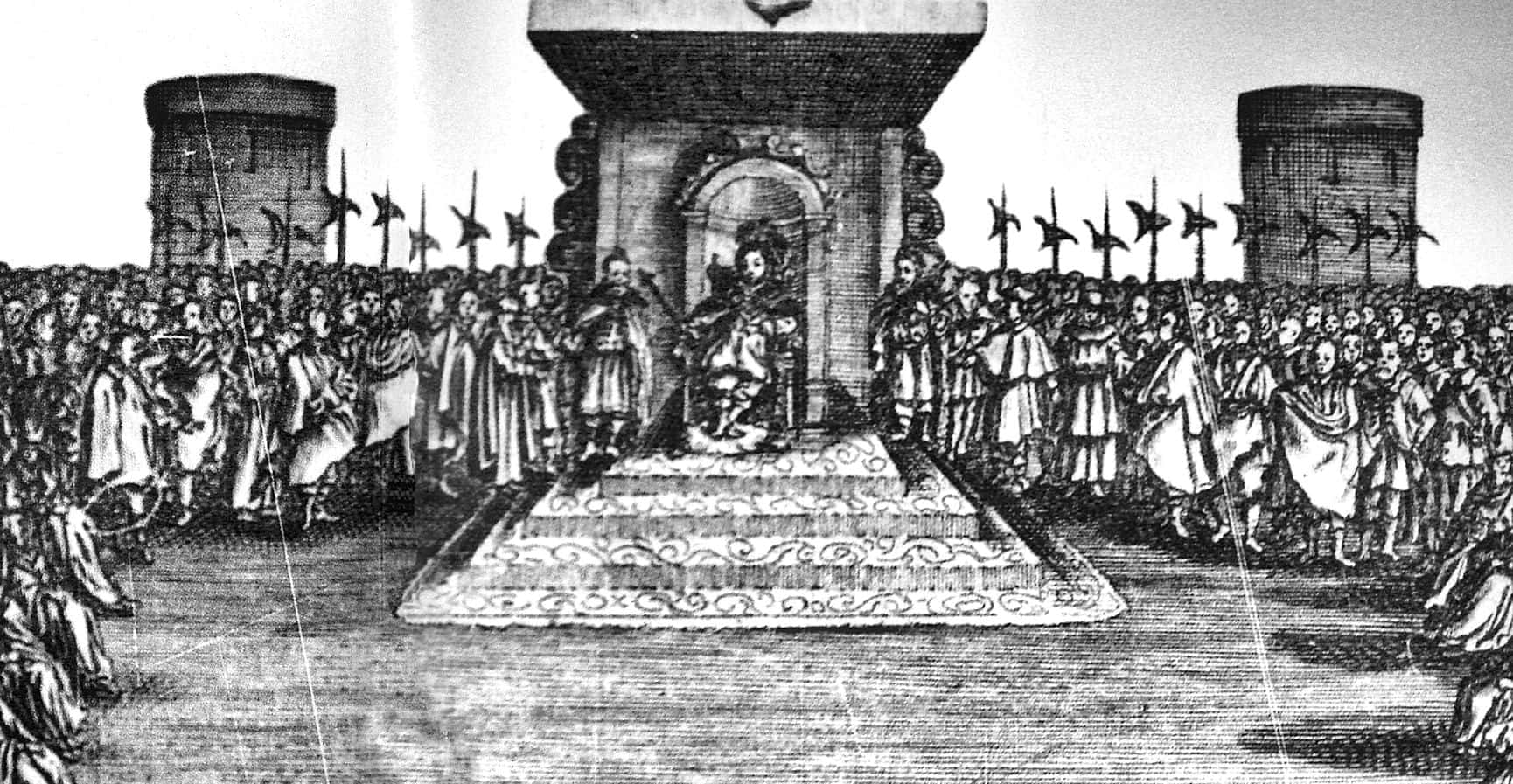 Wikipedia
Wikipedia
16. She Had Responsibilities
By 1577, Franco had given birth to six boys…and none of them had the same father. She indicated that one of the dads was a Venetian nobleman, and the other a wealthy merchant, but none of the men stepped up to claim the kids. Although only three of them survived their infancy, Franco nonetheless had the means to support the other three and herself easily. In fact, she did more than just support them.
17. She Could Afford Help
Wealthy clientele meant Franco was able to lead a luxurious life for herself and her family, not just a stable one. In addition to caring for her children’s needs and her own, she also hired several servants to manage the house, and the best tutors to ensure that her kids got a good education. This left her with a clear conscience to follow her own dreams.
18. She Was Living Her Dream
Besides her courtesan income, Franco also had more "prestigious" support. Domenico Venier’s patronage gave her the means and the confidence to publish her own volume of poems in 1575. Titled Terze Rime, the volume contained 25 poems, capitoli or verse epistles. She wrote 18 of these, and she broke quite a few rules in the process.
 Dangerous Beauty (1998), Warner Bros. Pictures
Dangerous Beauty (1998), Warner Bros. Pictures
19. Her Poetry Was Different
Veronica Franco wrote in the genre of all female poets of the time. This meant more personal lyric poems, as the more historical genres of epic, tragedy, and philosophy were mostly considered a male domain. However, her themes and writing were anything but traditional. Her poems celebrated her sensuality, and passionately spoke in favor of courtesan and female rights and against all men who upheld the patriarchal system and expected women to submit to their wishes.
In fact, she declared herself a defender for all women against such men. How would patriarchal Venice take this kind of goading? Not too kindly, I’m afraid.
 Dangerous Beauty (1998), Warner Bros. Pictures
Dangerous Beauty (1998), Warner Bros. Pictures
20. She Had Some Haters
Unfortunately, Franco’s writing caught the attention of several men whose tiny egos couldn’t take her defense of women’s rights—and their reactions were devastating. Maffio Venier was one such person and yes, ironically, he was related to her patron, Domenico. But Maffio didn’t just air his dislike for Franco among friends and family.
He made sure the rest of the world heard about it too—and in the worst way possible.
21. She Had To Deal With Detractors
Of course, everyone in the public eye has to deal with some haters, but it can get a bit much when the hate is unrelenting and spiteful. Veronica Franco discovered that Maffio Venier was particularly venomous. He not only shamed her for her profession, but he also wrote super lewd verses mocking her and claiming she was the root of all things rotten in Venice.
Thankfully, Franco countered his attacks and came up with a plan...
22. She Could Stand Up For Herself
In a true boss move, Franco shot back at Maffio Venier in a brilliant way. She wrote her own poems to answer Maffio’s vile accusations about her body and profession plunging Venice into disease and ruin. In a stinging rejoinder, she argued that his departure from poetic decorum and common decency was more likely to contribute to Venice’s downfall than her own honest means of earning a livelihood.
And that, ladies and gentlemen, is a mic drop moment.
23. She Had Admirers Too
Despite Maffio’s hatred, Franco had her share of fans too. Interestingly, one of her biggest fans was Maffio’s cousin, Marco. He may even have been the person who wrote the other seven poems in her co-authored book Terze Rime. Spoiler alert: his cousin didn’t like him. However, Marco’s ardor won him the prize he wanted: our girl Veronica’s deep love.
No, she didn’t stop being a courtesan, but it’s nice to think she knew a thing or two about true love before everything started going south.
 Dangerous Beauty (1998), Warner Bros. Pictures
Dangerous Beauty (1998), Warner Bros. Pictures
24. She Lived Through An Epidemic
Remember the rot Maffio was holding Franco responsible for? He was in part referring to the bubonic plague that broke out in Venice in 1575. It was so destructive that everyone was searching for someone to blame. As the illness ravaged the city, it propelled Franco to make a tough decision.
25. She Had To Leave Home
As the pandemic continued, poor Veronica Franco was faced with a heartbreaking choice. She couldn’t really enjoy the fruits of her literary labor, as she ended up leaving the plague-infested Venice. It’s undecided whether she left Venice by her own volition, or if Maffio’s attacks succeeded in pushing the government to ask her and other courtesans to leave until the epidemic was over.
In either case, leaving Venice devastated her. She even wrote a poem about her exit, using the image of fleeing from a cruel lover to describe her feelings about leaving her disease-ridden, yet beloved city. She would return to Venice after two years, only to find devastating changes.
26. Her Life Changed
Franco returned to Venice in 1577 and faced a disturbing reality. The plague had infected her mother and only surviving brother, and they had succumbed to the illness. This left Franco with no sympathetic shoulders to lean on, and even as she grieved for her family, she faced new and terrifying challenges to rise up to.
27. She Had A Lot More To Do
Two years is a long time, and Veronica Franco hadn’t expected to return to luxury in Venice. However, she probably didn’t imagine the number of problems to be this high either. Looters had nicked all her possessions and she didn’t have her old house to come back to. To add to her worries, she had more mouths to feed, as her brother’s kids were now her responsibility.
 Dangerous Beauty (1998), Warner Bros. Pictures
Dangerous Beauty (1998), Warner Bros. Pictures
28. She Got To Work
Her never-say-die attitude served Franco well at this time, too. Her clients remembered her, and she started from where she had left off again. With time, she was able to recover some of her wealth, and she was able to hire help and tutors for all the children in her care. She also rejoined the literary circles she’d participated in previously.
It wasn’t all work and no play with her though.
 Dangerous Beauty (1998), Warner Bros. Pictures
Dangerous Beauty (1998), Warner Bros. Pictures
29. She Was A Trendsetter
16th-century Venice may not have had a runway, but its courtesans did double up as fashionistas and trendsetters. Franco particularly enjoyed turning heads by following her own sense of style. She often dressed up in fine gowns with men’s trousers underneath, sometimes wearing dangerously plunging necklines, and sometimes parading around in extremely high heels.
Her literary sense was just as good as her sartorial vision though, if not better.
 Dangerous Beauty (1998), Warner Bros. Pictures
Dangerous Beauty (1998), Warner Bros. Pictures
30. She Got Published Again
A few years after she’d come back to Venice, Franco published a volume of letters. The book’s title was Lettere Familiari a Diversi, and it contained 50 letters to unnamed persons—well, 48, to be precise. There were two whose recipients were real people: King Henry III and Tintoretto, a famous Venetian painter who had once used his skills to paint Franco’s portrait.
By writing about her own life, and daily activities, Franco sought to prove that even the courtesan could present useful, moral, and ethical commentary on women’s social issues. Yet for all Franco’s championing of her profession, her friends and family knew a different, sadder side of her.
31. She Didn’t Want Girls To Follow Her Footsteps
One of Franco’s most famous letters was written to a friend who wanted her daughter to become a courtesan. Franco’s reply was heartbreaking. She discouraged her strongly and her tone changes from strict reproach to practical coaxing. Franco details why this is an undesirable profession and adopts plain speaking when she tells her friend that her daughter doesn’t even have the looks to work it.
And no, she didn’t say that to be mean. She honestly felt that girls deserved a better life than the one she was leading.
32. She Discovered A Theft
Clearly, Veronica Franco was extremely sharp and intelligent, but that didn’t stop people from trying to pull a fast one over her. One day her sons’ tutor, Redofo Vannitelli, lifted some of her valuables. She found out almost immediately and rightly accused him and her maid of the burglary. Vannitelli wanted to save his skin—and he tried to do it in the most chilling way.
33. Her Accused Turned Accuser
Franco was no stranger to being called all sorts of names, but Vannitelli went a step further and nearly ruined her life in the process. He called her a witch not to her face, but in front of the Venetian Inquisition Court. It had been set up to investigate accusations of witchcraft, and Vannitelli used it to shift blame from himself to Franco.
Not only could Franco not complain about his thieving, she now had to prove herself innocent in front of the court.
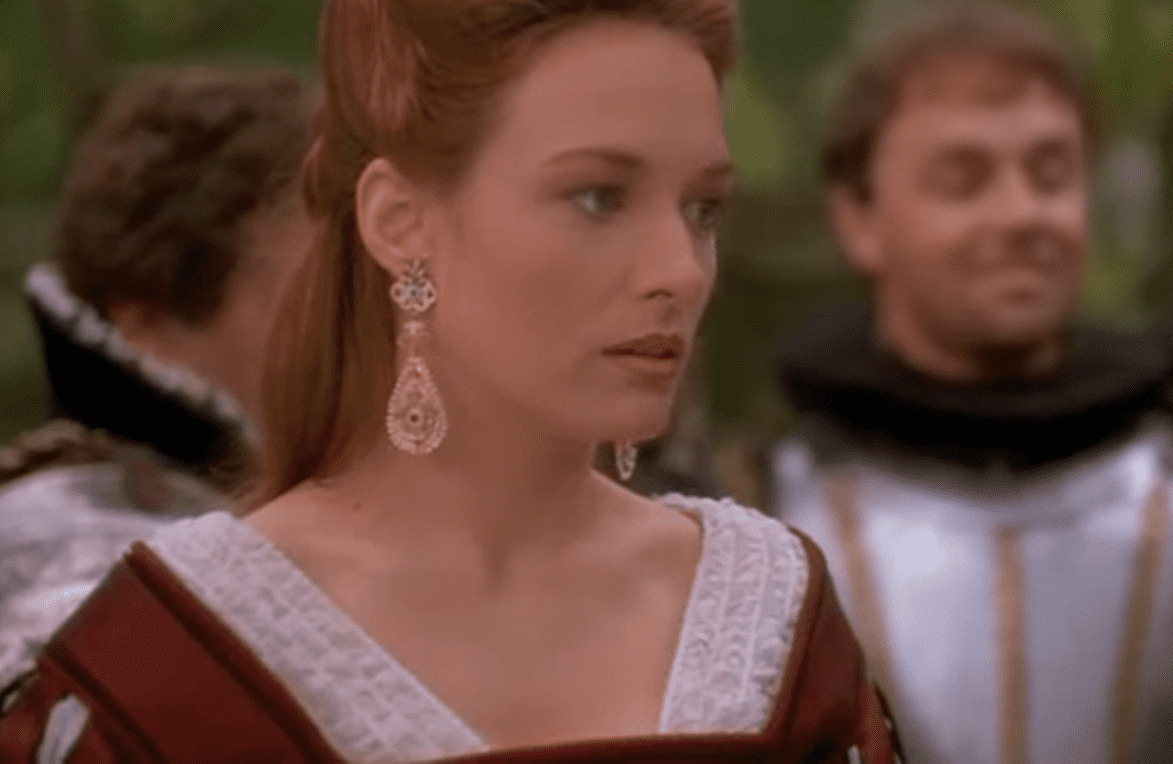 Dangerous Beauty (1998), Warner Bros. Pictures
Dangerous Beauty (1998), Warner Bros. Pictures
34. He Had A Lot Of Complaints
Vannitelli clearly belonged to the Maffio Venier camp. Not content to just accuse her of being a witch, he also said he heard her murmuring incantations to summon demons, and claimed she ate meat on Fridays, played prohibited card games, and wore prohibited jewels—pearls. But that’s not all. As the cherry on top, his accusations relapsed into condemning her also for her courtesan lifestyle.
His complaints had the desired result. The court summoned Franco to talk to her.
35. She Had To Face Trial
Although Franco didn’t officially know why she’d been summoned to the court, the reasons and Vannitelli’s accusations were nonetheless an open secret throughout Venice. So as the trial day approached, Franco made sure she prepared herself accordingly. Vannitelli, safe in his smugness, probably didn’t realize that she wasn’t the sort to go down without a fight.
36. She Had Well-Wishers
Veronica Franco had several people cheering for her when she took the stand. Her old friend Domenico Venier supported her throughout, and the fact that he still sided with her had some bearing on the Court when they asked Franco to explain why she considered herself innocent in the face of all the allegations directed against her.
Keeping all that we know about Franco in mind, it’s no surprise she had a boss response.
 Dangerous Beauty (1998), Warner Bros. Pictures
Dangerous Beauty (1998), Warner Bros. Pictures
37. She Defended Herself
All those years of dealing with Maffio Venier and similar haters had given Franco an iron will. She answered the Inquisitor confidently, openly, and without trying to hide anything. She accepted that she had allowed her neighbor to perform incantations with her children in her house, but she argued that she’d only done it when Vannitelli and her servants had insisted.
Her sin then, she claimed, was giving in to superstition and definitely not performing witchcraft. She denied eating meat or eggs on prohibited days, except when she was sick or if she had given birth. Basically, the Inquisitor found Franco had an answer for everything.
 Dangerous Beauty (1998), Warner Bros. Pictures
Dangerous Beauty (1998), Warner Bros. Pictures
38. She Won Her Case
Eventually, Franco won her case. The court found her not guilty. This may have been because of her own quick-witted replies, because of the invisible support of Venier, or because of the Inquisitor’s own inclination towards her—maybe even a combination of all three. The point is, she was officially proven not guilty.
Unfortunately, the relief and happiness Franco must have felt at the verdict wouldn’t last long.
39. It Was A Bittersweet Victory
In the end, Veronica Franco made a devastating discovery. It turned out that the verdict made little difference in how the public felt towards her. It seemed like they had already accepted that she was a witch and didn’t want anything to do with her. Tragically, this episode would define her entire life from this point on.
 Dangerous Beauty (1998), Warner Bros. Pictures
Dangerous Beauty (1998), Warner Bros. Pictures
40. Her Circumstances Changed
A fall from grace hurts terribly, especially if you’re not responsible for it in the first place. Franco found that even her regular clientele wasn’t ready to ignore the whispers about her. Although Vannitelli hadn’t been successful in proving she was a witch, it certainly appeared that he was going to succeed in ruining her life.
But there were other tragedies waiting for her, too.
 Dangerous Beauty (1998), Warner Bros. Pictures
Dangerous Beauty (1998), Warner Bros. Pictures
41. She Lost An Old Friend
Franco faced her share of difficulties and hardships, but there was one person whose protection and generosity she could always count on: Domenico Venier. When he passed on in 1582, it was a huge blow to her. Essentially, his passing left her entirely alone and friendless. It also meant that there was now no one to help her financially either.
Poor Franco. Sometimes it doesn’t rain, it pours.
42. She Had To Move
Remember how Veronica Franco lost a lot of wealth and valuables when she left Venice in the plague of 1575? She never truly recovered from that hit financially, though she was doing well enough to live in a good part of town. Unfortunately, the trial changed everything. Her career was at an all-time low, and Venier’s death was the final blow.
She realized she couldn’t afford her current lifestyle anymore, so she had had to make a hard choice.
43. She Lived In Poverty
Since Veronica Franco couldn’t afford a small house in any decent neighborhoods, she ended up moving to a part of town known for its poverty-stricken residents, many of whom performed the same work as she did on a regular basis. And this time, it seemed like her spirit was truly broken. She had fought so hard throughout her life, and it looked like she was finally too tired to fight anymore.
It’s a pity that no one stood up for her the way she’d stood up for them.
44. She Campaigned For Women
After her return to Venice in 1577, Veronica Franco had passionately advocated for a shelter for "fallen women". She’d argued that many courtesans were at the mercy of their patrons, and unable to quit their "job" because they had no means to survive. She wrote to the government, urging it to open a home for such women. who could not go to existing homes, which only existed for the unmarried and childless.
She even offered to run the home herself, if the government decided to fund it. It’s tragic that if they’d accepted her offer she wouldn’t have had to worry about her finances or a place to live. It may even have led to a different ending for her and perhaps several other former courtesans.
 Dangerous Beauty (1998), Warner Bros. Pictures
Dangerous Beauty (1998), Warner Bros. Pictures
45. She Had A Kind Heart
Franco was compassionate and felt particularly strongly for young girls who had no choice or agency regarding their lives. She’d always had a provision in her wills that stated that after her bequests to the family, any money left should go to the Casa Del Zitelle, a shelter to help poor, unmarried girls. In other words, she always had women’s backs, in more ways than one.
46. She Was An Unabashed Feminist
Veronica Franco was a feminist before anyone had even heard of that word. She argued that if women were to receive the same "arms and training" as men, no one could rob them of their rightful place in society. She meant that women should receive the same education and privileges as a man because they were just as capable.
Sadly, she didn’t live to see it happen, but she set the foundation for women’s demand for equal rights.
47. She Had An Abrupt Ending
Veronica Franco lived a loud and proud life until she felt beaten by her circumstances. Then she just tried to forge on, making do in her tiny house, with her sons and nephews. She exited the world quietly, at the age of 45. Sadly, there weren’t many to mourn her.
48. People Forgot About Her
Venice had already forgotten Franco, even while she lived. They were definitely not going to make an effort to remember her after she passed on. In fact, it seemed like even her passionate poetry or the trailblazing thoughts she’d voiced in her letters wasn’t enough to keep her memory alive. It seemed like history would forget Veronica Franco—but luckily, her legacy burned bright.
49. Her Writings Resurfaced
The fact that Franco had two pieces of published writing under her belt is eventually what saved her. Even though she faded from public memory initially, her writings resurfaced in the 18th century when Luisa Bergalli included her poems in an anthology with other Renaissance female poets. Of course, that could have meant nothing if her work wasn’t good enough to stand the test of time.
50. She Made A Reappearance in Pop Culture
Sooner or later, someone was going to realize that Franco’s life story deserved a book. Margaret F. Rosenthal wrote An Honest Courtesan in 1992, and Marshall Herskovitz adapted it into a movie—Dangerous Beauty—just a few years later. Herskovitz admitted one mistake, though. He did regret showing that she lived happily with her love, Marco Venier, at the end of the movie, since there is no evidence that shows that she did.
Is Veronica Franco as well-known as she deserves to be? Probably not, but at least her name didn’t disappear in the annals of history.
 Dangerous Beauty (1998), Warner Bros. Pictures
Dangerous Beauty (1998), Warner Bros. Pictures
Sources: 1, 2, 3, 4, 5, 6, 7, 8, 9, 10, 11, 12, 13, 14, 15, 16, 17, 18, 19, 20, 21, 22, 23, 24, 25

